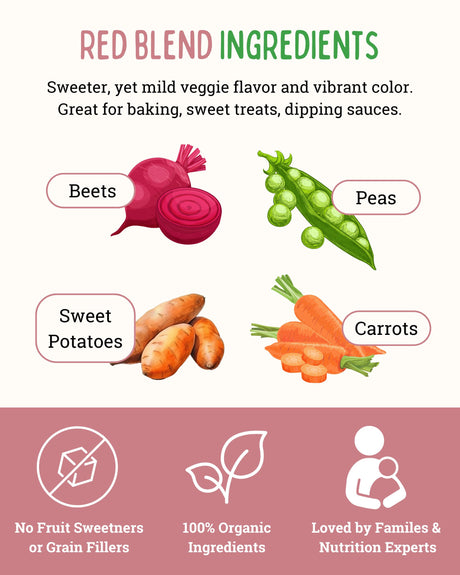In today's fast-paced society, the nutrition of our children has become a focal point of concern for many parents. Between juggling busy schedules and catering to the preferences of picky eaters, ensuring that kids receive a balanced diet can often feel like a monumental task. Conversations about children's nutrition are now commonplace, whether it's during pediatrician visits, on parenting forums, or even casual chats at the local playground.
The Booming Child Supplement Market
Parallel to these concerns, there's been a noticeable surge in the market for children's supplements. A mere glance at the health aisle in stores showcases a plethora of supplements targeting young ones. From chewable multivitamins adorned with popular cartoon characters to tasty probiotic drinks, the array of choices is both vast and, at times, daunting. As the options multiply, parents are left pondering the necessity of these supplements and, if they do choose to incorporate them, how to select the most suitable product for their child's needs.
Understanding the Basics of Supplements
What Are Dietary Supplements?
Dietary supplements are specially formulated products designed to augment our daily intake of essential nutrients. They come in a myriad of forms, including tablets, capsules, powders, gummies, and liquids. While they can be beneficial in addressing specific nutrient deficiencies, they are intended to complement our diet, not replace it.
The Benefits of Whole Foods
Whole foods, such as fresh fruits, vegetables, grains, and proteins, are nature's powerhouse of nutrition. They not only provide essential vitamins and minerals but also a plethora of other beneficial compounds like antioxidants, phytochemicals, and fiber. These compounds work synergistically in whole foods, enhancing their overall nutritional value and offering protective health benefits that are often not replicated in supplements.
Supplements vs Whole Foods
Supplements, though beneficial, offer a more isolated approach to nutrition. For instance, while a vitamin C supplement might boost your immune system, consuming an orange provides that same vitamin C along with fiber, potassium, and flavonoids. The body often absorbs nutrients better when they come from whole foods. Moreover, whole foods provide a sense of satiety and can aid in overall digestive health. It's essential to view supplements as a tool to complement a well-rounded diet, especially when certain nutrients are lacking, rather than a primary source of nutrition.

Why Consider Supplements for Kids?
Addressing Nutritional Gaps
In an ideal world, our children would get all the essential nutrients from their daily meals. However, with the rise of processed foods and the fast-paced nature of modern life, ensuring a perfectly balanced diet can be a challenge. Many kids today might not be getting the recommended daily intake of certain vitamins and minerals, leading to potential nutritional gaps. This is where supplements can step in, acting as a safety net to ensure our little ones are getting the nutrients they need to thrive.
Supplementing for Specific Health Challenges
While most children can get their nutrients from a varied diet, some might have specific conditions or health challenges that make this more difficult. For instance, children with food allergies, digestive disorders, or those following restrictive diets might miss out on essential nutrients. In such cases, under the guidance of a healthcare professional, supplements can play a crucial role in ensuring they receive the right amounts of vitamins and minerals.
Balancing Diet and Supplementation
It's vital to remember that supplements are not a replacement for a balanced diet. Instead, they should be viewed as a complementary tool. A diet rich in whole foods, from colorful vegetables to lean proteins, remains the cornerstone of good health. Supplements are there to fill in the gaps, ensuring that children get the full spectrum of nutrients they need for growth and development. Before introducing any supplement, it's always best to consult with a pediatrician or nutritionist to determine the best approach for your child's unique needs.
Types of Supplements for Kids
Multivitamins: Covering the Basics
When it comes to ensuring our kids get a little bit of everything, multivitamins are often the go-to choice for many parents. These supplements offer a broad spectrum of essential vitamins and minerals, acting as a backup to a child's daily diet. They're particularly beneficial for those days when getting your child to eat a balanced meal feels like an uphill battle.
Probiotics: Nurturing the Gut
The importance of gut health is becoming increasingly recognized, and probiotics play a pivotal role in this arena. These beneficial bacteria support a healthy digestive system, aiding in nutrient absorption. Moreover, a robust gut can have ripple effects, potentially boosting immunity and even influencing mood. For kids, probiotics can be especially helpful after a course of antibiotics or during times of digestive upset.
Omega-3 Fatty Acids: Fueling the Brain
Omega-3 fatty acids, often sourced from fish oils, are champions for brain health and cognitive development. These essential fats support neural connections, playing a role in everything from concentration to mood regulation. Given that not all children might be fans of fish, supplements can be a practical way to ensure they're getting these crucial fatty acids.
Vitamin D: Sunshine in a Bottle
Known as the 'sunshine vitamin', Vitamin D is vital for bone health and immune function. With kids spending more time indoors and sunscreen blocking the sun's rays, many children might not be getting enough of this essential nutrient. Vitamin D supplements can help bridge this gap, ensuring strong bones and a resilient immune system.
Iron: Vital for Growth and Development
Iron is a key mineral for growth and development, especially when it comes to transporting oxygen in the blood. For children following vegetarian or vegan diets, or those with certain health conditions, getting enough iron can be challenging. Iron supplements can help ensure they're meeting their needs, supporting energy levels and cognitive function.
Vegetable Power Blends: Veggie Boost in a Bottle
In the realm of children's nutrition, veggie powders are emerging as a game-changer. These finely milled powders capture the essence and nutrition of whole vegetables, offering a concentrated dose of veggie goodness. For parents navigating the tricky waters of picky eating, these powders can be a lifesaver. Simply sprinkled onto meals or mixed into smoothies, they seamlessly integrate into a child's diet without altering the taste or texture of their favorite dishes. Brands like EasyPeasie have harnessed this concept, creating blends that ensure children receive a spectrum of nutrients from a variety of vegetables. It's a modern solution to an age-old challenge, making sure kids get their daily dose of vegetables in a fuss-free manner.

Navigating the Supplement Landscape: Risks and Considerations
The Double-Edged Sword of Over-Supplementation
While supplements can be beneficial, there's a thin line between ensuring adequate nutrition and overdoing it. Over-supplementation can lead to an excess of certain vitamins or minerals, which might have adverse effects on a child's health. For instance, excessive iron can be toxic, and too much vitamin A can lead to bone issues. It's essential to strike the right balance.
Pediatrician's Guidance: An Essential Step
Before introducing any supplement into your child's diet, it's paramount to consult with a pediatrician. They can provide insights tailored to your child's specific needs, ensuring that any supplementation complements their diet without causing imbalances. Remember, every child is unique, and what works for one might not be suitable for another.
Deciphering Supplement Quality and Source
Not all supplements are created equal. It's crucial to understand where they come from and the quality standards maintained by the brand. Opt for products that are transparent about their ingredients, sourcing, and manufacturing processes. This ensures you're providing your child with a product that's both safe and effective.
Navigating the Supplement Aisle: Making Informed Choices for Your Little One
Age-Appropriate Formulations: Tailored Nutrition
When it comes to supplements, one size doesn't fit all. Children's nutritional needs evolve as they grow, so it's essential to choose products specifically formulated for their age group. This ensures they're getting the right amount of nutrients without the risk of overconsumption.
Natural vs. Synthetic: The Ingredient Debate
The debate between natural and synthetic ingredients in supplements is ongoing. While natural ingredients are derived from food sources, synthetic ones are made in a lab. Some argue that natural forms are more bioavailable, meaning the body can use them more efficiently. However, the most crucial factor is the supplement's quality and how it complements your child's diet.
Third-Party Testing: An Assurance of Quality
Certifications and third-party testing can provide an added layer of confidence. These tests ensure that the product contains what it claims and is free from harmful contaminants. Look for seals or certifications from reputable organizations on the packaging.
Listening to the Crowd: Reviews & Recommendations
While it's essential to consult professionals, sometimes fellow parents can offer invaluable insights. Reading reviews and seeking recommendations can provide a real-world perspective on how a supplement might benefit your child.
Cost & Accessibility: Balancing Budget with Benefits
While we all want the best for our children, it's also essential to consider cost and accessibility. Sometimes, a more expensive supplement doesn't necessarily mean it's better. Find a balance between quality and affordability, and consider how easily you can obtain the supplement regularly.
Introducing Supplements: A Gentle Beginning
Starting Small: The Low-Dose Approach
When introducing any new supplement into your child's diet, it's always wise to start with a lower dose than recommended. This allows you to monitor your child for any adverse reactions or sensitivities. After a few days, if all seems well, you can gradually increase to the suggested dosage.
Making Supplements Fun: Beyond the Pill
Let's face it, getting kids to take anything that resembles medicine can be a challenge. Thankfully, the world of children's supplements is vast and varied. From fruity gummies to versatile veggie powders like EasyPeasie, there are plenty of kid-friendly options. Chewable tablets in fun shapes or liquid drops that can be mixed into their favorite drink are also great alternatives. The key is to make the experience as enjoyable as possible, turning supplement time into a treat rather than a chore.
Consistency is Key: Timing Their Nutritional Boost
Just like with any routine, consistency is crucial when it comes to supplements. Whether it's a daily multivitamin or a weekly vitamin D drop, establish a specific time each day or week to give the supplement. This not only ensures that your child gets the full benefit but also turns it into a habit. Some supplements might be best taken with food, while others might have specific timing recommendations. Always refer to the product's label or consult with a pediatrician for guidance.
Final Thoughts
Striking the Right Balance: Diet and Supplements
Whole foods will always be the gold standard when it comes to nutrition. They offer a complex nutritional matrix that supplements can't replicate. However, in today's fast-paced world, ensuring a perfectly balanced diet every day can be a challenge. Supplements, when chosen wisely, can act as a safety net, filling in those occasional nutritional gaps. But they should never be a replacement for a wholesome, varied diet.
Staying Informed: The Ever-Evolving World of Nutrition
The realm of children's nutrition is ever-evolving, with new research emerging regularly. As parents, it's essential to stay updated, but it's equally crucial to approach new information with a discerning eye. Not every headline or new study warrants a change in your child's diet or supplement routine. Being informed means sifting through the noise, understanding the science, and making choices based on credible sources.
Empowering Parents: Every Child is Unique
The journey of ensuring a child's nutritional well-being can feel overwhelming for many parents. But remember, every child is unique, and what works for one might not work for another. It's about understanding specific needs, consulting with professionals, and making informed decisions. Supplements can be a valuable tool in this journey, but they're just one piece of the puzzle. With research, consultation, and a dash of parental intuition, parents can navigate the world of children's nutrition with confidence.













